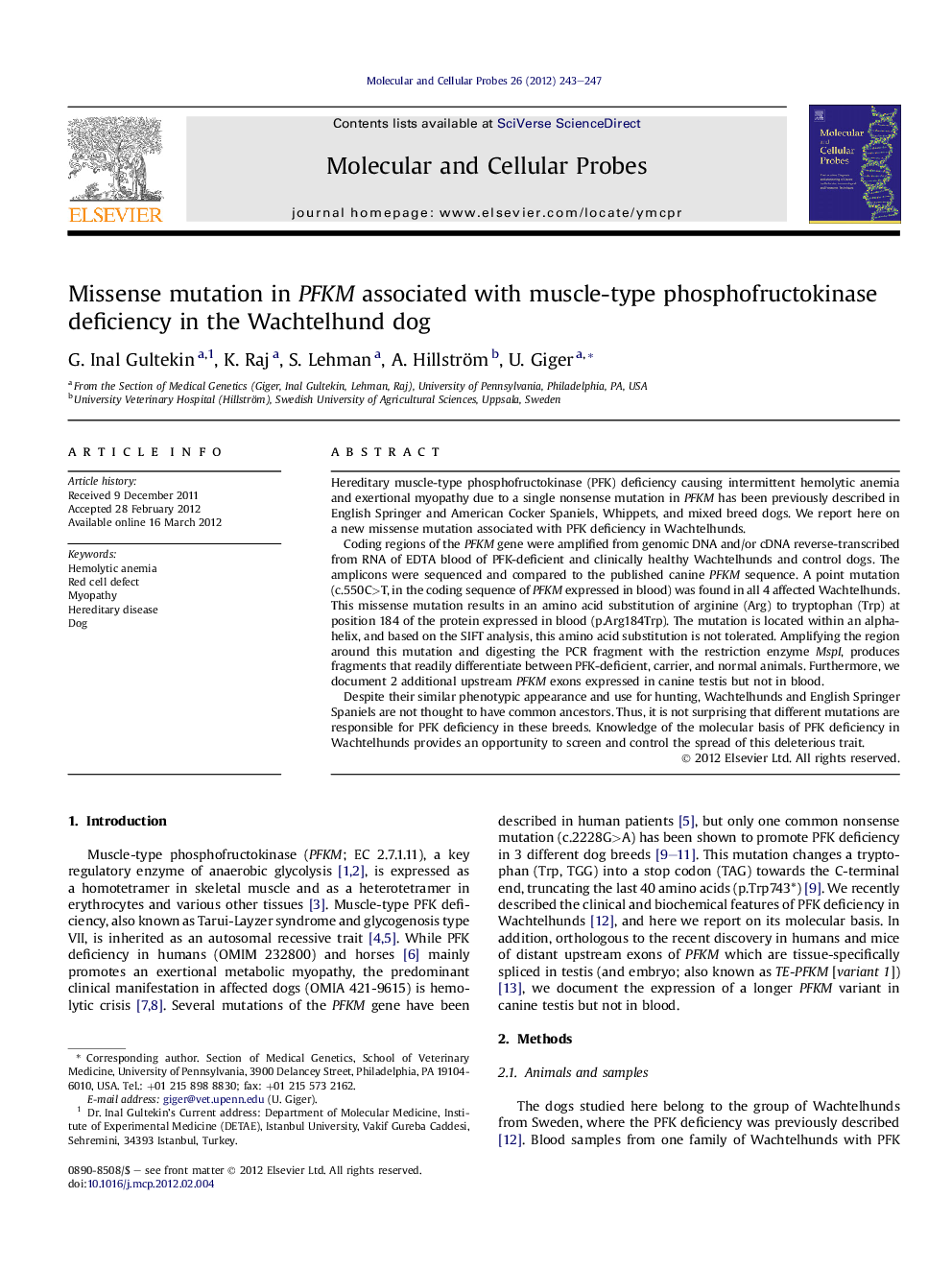| Article ID | Journal | Published Year | Pages | File Type |
|---|---|---|---|---|
| 2199826 | Molecular and Cellular Probes | 2012 | 5 Pages |
Hereditary muscle-type phosphofructokinase (PFK) deficiency causing intermittent hemolytic anemia and exertional myopathy due to a single nonsense mutation in PFKM has been previously described in English Springer and American Cocker Spaniels, Whippets, and mixed breed dogs. We report here on a new missense mutation associated with PFK deficiency in Wachtelhunds.Coding regions of the PFKM gene were amplified from genomic DNA and/or cDNA reverse-transcribed from RNA of EDTA blood of PFK-deficient and clinically healthy Wachtelhunds and control dogs. The amplicons were sequenced and compared to the published canine PFKM sequence. A point mutation (c.550C>T, in the coding sequence of PFKM expressed in blood) was found in all 4 affected Wachtelhunds. This missense mutation results in an amino acid substitution of arginine (Arg) to tryptophan (Trp) at position 184 of the protein expressed in blood (p.Arg184Trp). The mutation is located within an alpha-helix, and based on the SIFT analysis, this amino acid substitution is not tolerated. Amplifying the region around this mutation and digesting the PCR fragment with the restriction enzyme MspI, produces fragments that readily differentiate between PFK-deficient, carrier, and normal animals. Furthermore, we document 2 additional upstream PFKM exons expressed in canine testis but not in blood.Despite their similar phenotypic appearance and use for hunting, Wachtelhunds and English Springer Spaniels are not thought to have common ancestors. Thus, it is not surprising that different mutations are responsible for PFK deficiency in these breeds. Knowledge of the molecular basis of PFK deficiency in Wachtelhunds provides an opportunity to screen and control the spread of this deleterious trait.
